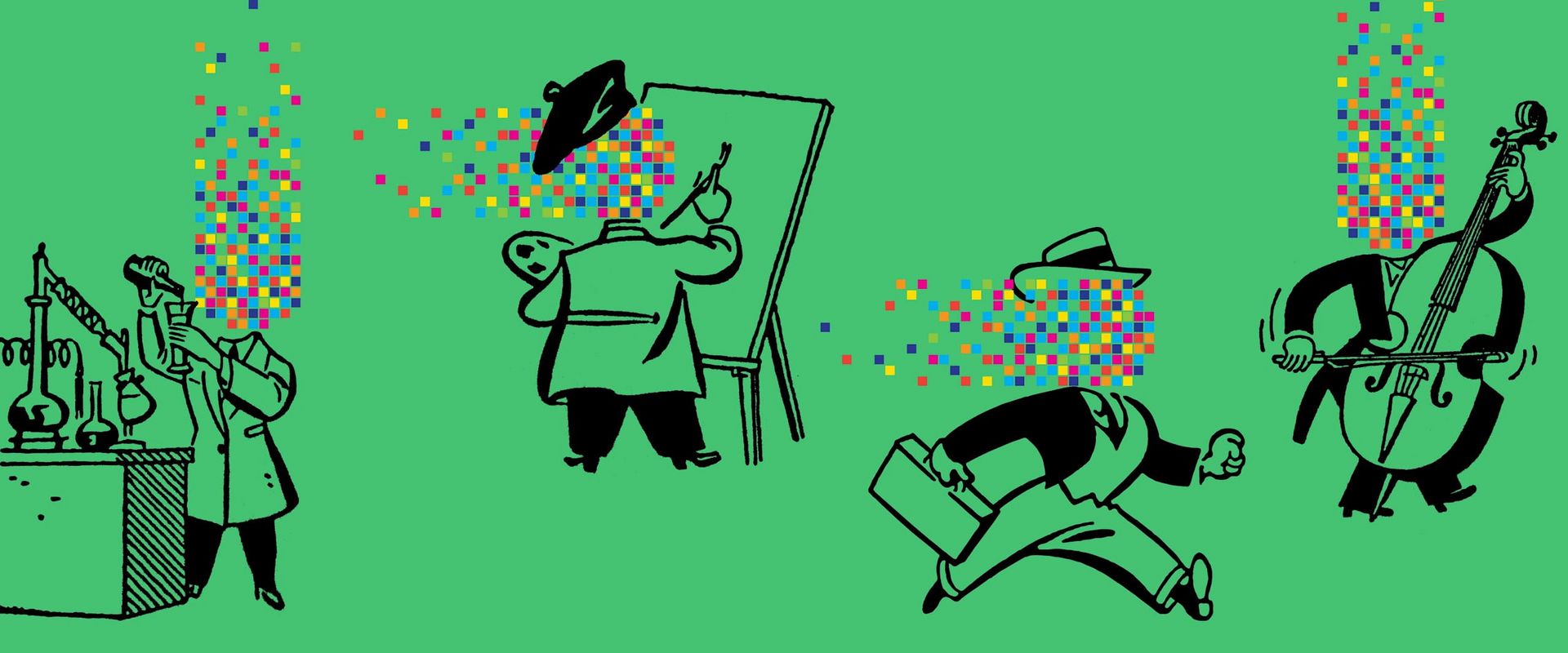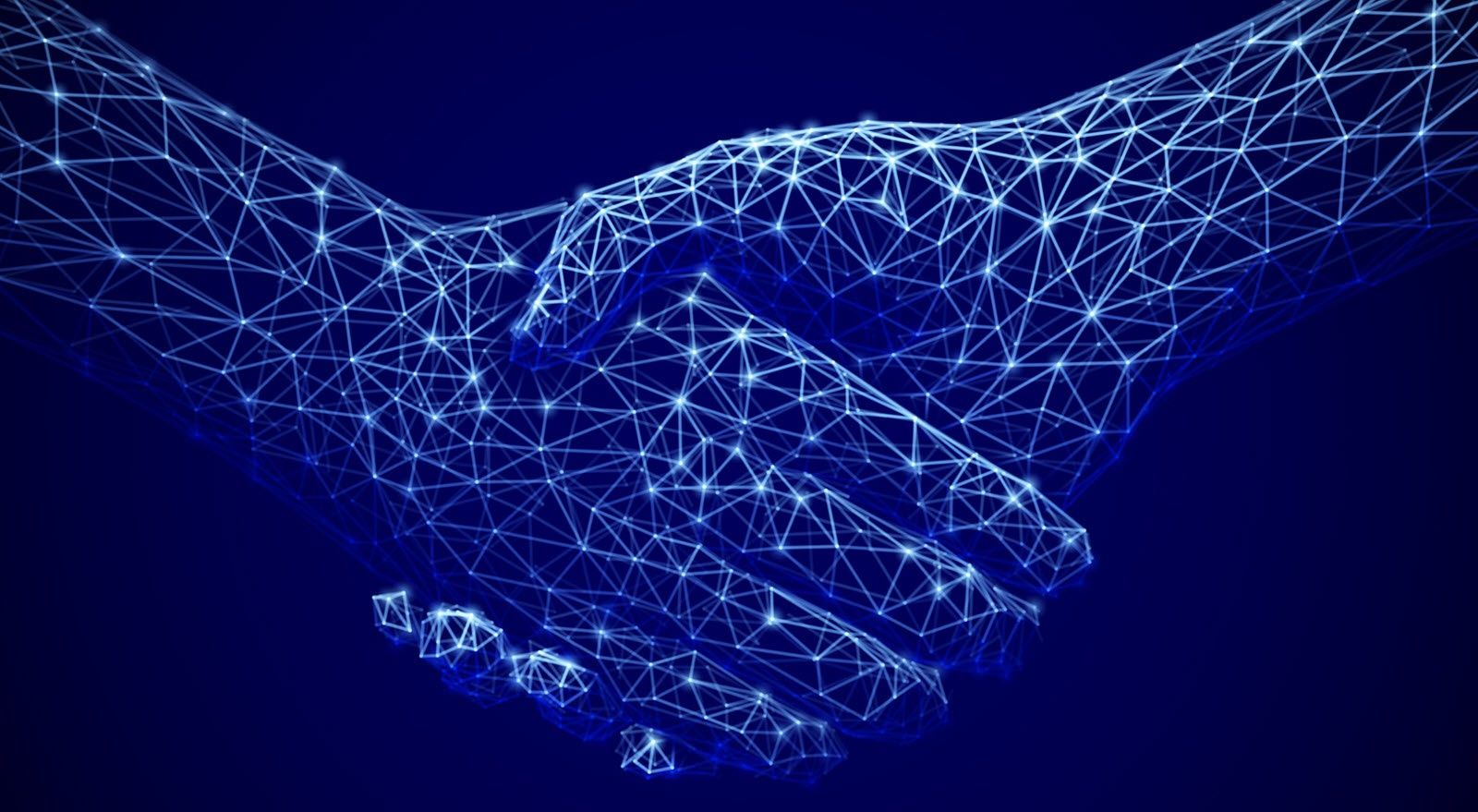- AI&TFOW
- Posts
- AI Frees Us To Have New Ideas [Newsletter #66]
AI Frees Us To Have New Ideas [Newsletter #66]
Creativity is the new superpower
Hello, AI enthusiasts from around the world.
Welcome to this week's newsletter for the AI and the Future of Work podcast.
With every new technology, the same discussion arises: what will happen to our jobs? With AI, it’s no different. These questions fuel uncertainty and fear, especially in HR departments. That is why today’s and tomorrow’s HR leaders must have honest conversations about AI.
This week’s episode has one goal: to cut through the noise. Forget about dystopian futures or AI as a job killer. It is time to see it for what it truly can be: a creativity engine.
After all, AI is only valuable if the end goal is to improve the human experience.
Let’s dive into this week’s highlights! 🚀
🎙️New Podcast Episode With Josh Bersin, CEO of The Josh Bersin Company.
Is all the hype around AI something new, or have we seen it before?
More and more people are talking about AI, and some of those conversations paint it negatively. They say it’s too human-like. That it will take away our jobs. That we will be left with so much free time we won’t know what to do.
Josh Bersin likes to flip that narrative. He is one of the most respected thought leaders in the HR space, where people and technology converge. Today, he runs The Josh Bersin Company and continues to publish widely about the future of work, leadership, and talent management.
Josh offers a different perspective on how human talent and AI will integrate in the future. He begins with the elephant in the room: stop humanizing AI.
In his conversation with PeopleReign CEO Dan Turchin, Josh explains that AI might be the most powerful white-collar tool ever created. It will listen to you, work for you, and take your orders. These capabilities remind him of the hype cycles he has seen before, with the internet and mobile phones.
What AI lacks is what makes us uniquely human. We are genealogical creatures with millions of years of evolution in every one of our cells. For Josh, that is the clearest sign that a dystopian future where AI takes over our lives will not happen.
Today's conversation covers this and much more:
If we have seen today’s debate before, we also know what truly matters in these moments: skills, leadership, and versatility.
A new critical role is emerging: the supermanager. Part leader, part R&D chief, their responsibility will be to understand AI and channel human creativity.
AI has the potential to democratize access to tools and knowledge while also giving companies unprecedented access to employee data. Striking the right balance is essential for generating trust.
Routine tasks will disappear. That does not mean we’ll be left with idle time. Used wisely, AI creates superworkers who reinvest their time in solving more complex problems.
🎧 This week's episode of AI and the Future of Work, featuring Josh Bersin, inspired this issue.
Listen to the full conversation to hear why the companies that succeed will not be the ones with the most AI, but the ones that keep employees at the center of everything they do.
📖 AI Fun Fact Article
Anyone making alarmist predictions about AI-driven job loss needs a reality check. The dystopian future of mass unemployment is unlikely in the next decade.
Alok Aggarwal writes in Policy Circle that while job displacement will eventually come, the 2030s are too soon. AI systems remain relatively primitive, expensive to maintain, and are already hitting performance ceilings.
Organizations also rarely change processes overnight. Business operations evolve only when there is a clear and measurable impact on cost, revenue, speed, quality, compliance, or customer satisfaction. Even with those conditions, adaptation tends to be gradual, and AI is no exception.
Like all software, AI requires constant maintenance. Traditional DevOps covers tasks like code refactoring, debugging, and interface improvements. AI goes further, demanding continuous model retraining, data relabeling, and regular updates to stay relevant. These challenges only grow when AI agents are chained together to perform complex tasks.
If each AI agent performs at 92% accuracy, chaining ten of them together results in only a 44% overall success rate. These findings come from a Carnegie Mellon simulation of a virtual software company staffed entirely by AI agents.

Source: Edmon de Haro
This gives us a clearer picture of the future of work. Analysts estimate that 395 million jobs could be displaced by AI and automation.
However, there will be an offsetting gain of more than 1.3 billion jobs across sectors like healthcare, climate adaptation, infrastructure, and emerging technologies. This suggests that AI will not eliminate labor but redirect it.
PeopleReign CEO Dan Turchin encourages us to read the full article, calling it a thoughtful analysis supported by reliable data. He recently presented a similar analysis to CIOs, using the transportation industry as an example. While many of the 8.1 million human drivers for ride-share services and taxi companies may be displaced by self-driving vehicles, we are likely to see the creation of 103 million new jobs in areas such as urban planning, data analysis, policy design and enforcement, and of course, engineering, design, and maintenance.
Innovation has always been a catalyst for creativity, and creativity consistently produces new tools, industries, and jobs. The transition ahead may be unsettling, but it is crucial to question sources and do your own analysis before assuming bots are adversaries.
History is filled with examples. Hand loom weavers, horse-drawn buggy drivers, and switchboard operators all re-skilled, adapted, and embraced progress. That is how the next generation of leaders always emerges.
Listener Spotlight
George from Dallas is the CEO of an IT Managed Services Provider.
His favorite episode is our special from last December featuring John Chambers, the legendary CEO of Cisco. George shared that he has listened to it three times to absorb the wisdom John offered.
You can listen to that excellent episode here!
As always, we love hearing from you. Want to be featured in an upcoming episode or newsletter? Just comment and let us know how you listen and which episode has stayed with you the most.
Worth A Read📚
The Industrial Revolution eliminated jobs like weavers and rowers, but it also created demand in energy production, transport, maintenance, upgrading, and urban retail. One task closed while many others opened.

Source: Workday
The same pattern repeated with electricity and computers. Jacob Manoukian of JPMorgan notes that in the 1980s, companies needed eight employees to generate $1 million in revenue. By the 2000s, that number had dropped to six.
Manoukian warns that the coming years will bring a “violent task churn.” Even optimists may not be able to predict how many new opportunities will emerge.
We want to hear what you have to say! Your feedback helps us improve and ensures we continue to deliver valuable insights to our podcast listeners. 👇
👋 Until Next Time: Stay Curious
We want to keep you informed about the latest developments in AI. Here are a few stories from around the world worth reading:
Microsoft is making a massive investment in the UK, with the promise that AI could significantly boost the economy. Read more here.
This article explores how AI can reshape the way we teach engineering.
China is moving to challenge the world in advanced chip production. Here’s how.
That's a Wrap for This Week!
This week’s conversation invites us to replace pessimism with optimism about the future of AI and HR.
Our guest shared real-world examples and practical approaches to HR that any workplace can apply. While it’s easy to fall into the narrative that AI will replace us, it’s worth remembering that humans are, and must remain, at the center of every organization.
Whether you’re just starting in HR or leading at the top, we hope this conversation encourages you to rethink your perspective on AI and its role in shaping the workplace.
Until next time, keep questioning, keep innovating, and we’ll see you in the future of work 🎙️✨
If you liked this newsletter, share it with your friends!
If this email was forwarded to you, subscribe to our Linkedin’s newsletter here to get the newsletter every week.
